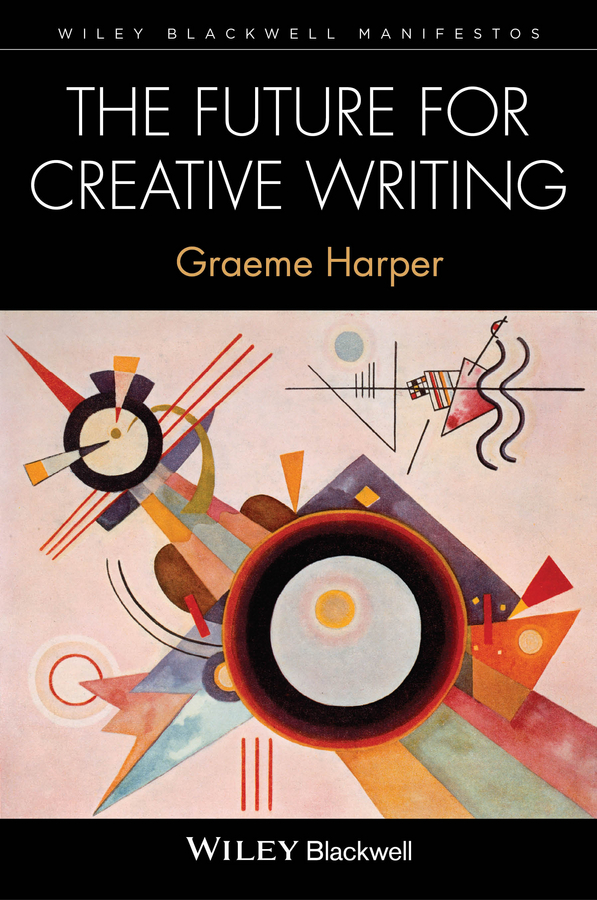Электронная книга: Graeme Harper «The Future for Creative Writing»

|
This is a compelling look at the current state and future direction of creative writing by a preeminent scholar in the field. Explores the practice of creative writing, its place in the world, and its impact on individuals and communities Considers the process of creative writing as an art form and as a mode of communication Examines how new technology, notably the internet and cell phones, is changing the ways in which creative work is undertaken and produced Addresses such topics as writing as a cultural production, the education of a creative writer, the changing nature of communication, and different attitudes to empowerment Издательство: "John Wiley&Sons Limited"
ISBN: 9781118325834 электронная книга Купить за 8034.98 руб и скачать на Litres |
Другие книги автора:
| Книга | Описание | Год | Цена | Тип книги |
|---|---|---|---|---|
| A Companion to Creative Writing | A Companion to Creative Writing comprehensively considers key aspects of the practice, profession and culture of creative writing in the contemporary world. The most comprehensive collection… — John Wiley&Sons Limited, электронная книга Подробнее... | электронная книга |
Graeme Harper
Graeme Harper (born Early life and career Born in Further television work followed in the late 1950s, appearing in children's serials for While applying for production jobs in television, he worked for a time as a driving instructor. One of his pupils was the personal secretary of film director BBC career After hearing nothing from his various applications to the BBC, Harper wrote to his former director Shaun Sutton, who was by now Head of Drama Serials at the BBC. With Sutton's assistance Harper gained an interview for the position of floor assistant, in which role he began working at Harper worked on various productions in this capacity, including the "Doctor Who" serial " In 1980, Harper once more worked on "Doctor Who" when he was assigned to be production assistant to director Harper's first television directing work consisted of episodes of the medical drama series "Angels". In 1983, John Nathan-Turner offered him work on "Doctor Who", but as he could only employ Freelance work Harper's first "Doctor Who" serial, " Harper's other work has included episodes of "Bergerac" (1985 & 1987), " Return to "Doctor Who" In 2005, twenty years after his last work on " Harper directed two episodes, "42" and "Utopia", for the 2007 series of "Doctor Who", as well as the mini-episode " He directed five episodes of the 2008 series of "Doctor Who", [cite podcast He is also currently developing an idea for a Western television series "from an English point of view — or a Welsh point of view." References External links * Источник: Graeme Harper
url =http://downloads.bbc.co.uk/doctorwho/s312_commentary.mp3
title = Last of the Time Lords commentary
website =
host =
accessdate = 06-30
accessyear = 2007] "
* [http://www.gallifreyone.com/dwdata.php?id=Graeme%20Harper Full "Doctor Who" credits] at
См. также в других словарях:
Back to the Future — This article is about the first film in the trilogy. For the trilogy as a whole, see Back to the Future trilogy. Back to the Future … Wikipedia
No Future for You — Cover of Buffy the Vampire Slayer Season Eight: No Future for You trade paperback collected edition Art by Jo Chen Publisher Dark Horse Comics Publication date … Wikipedia
The Angry Video Game Nerd — logo Also known as Angry Nintendo Nerd AVGN Genre Physical comedy, satire … Wikipedia
The New Masses — The Intricate Structure of Wall Street s Fascist Conspiracy, from the February 5, 1935 issue of The New Masses magazine, John L. Spivak. The New Masses (1926–48) was a prominent American Marxist publication edited by Walt Carmon, briefly by… … Wikipedia
The A-Team — This article is about the television series. For other uses, see The A Team (disambiguation). The A Team The A Team title screen (seasons 1–4). Format Action/Adventure … Wikipedia
The Holocaust in art and literature — As one of the defining events of the 20th century, and one of the most stark examples of human brutality in modern history, the Holocaust has had a profound impact on art and literature over the past 60 years. LiteratureSome of the more famous… … Wikipedia
